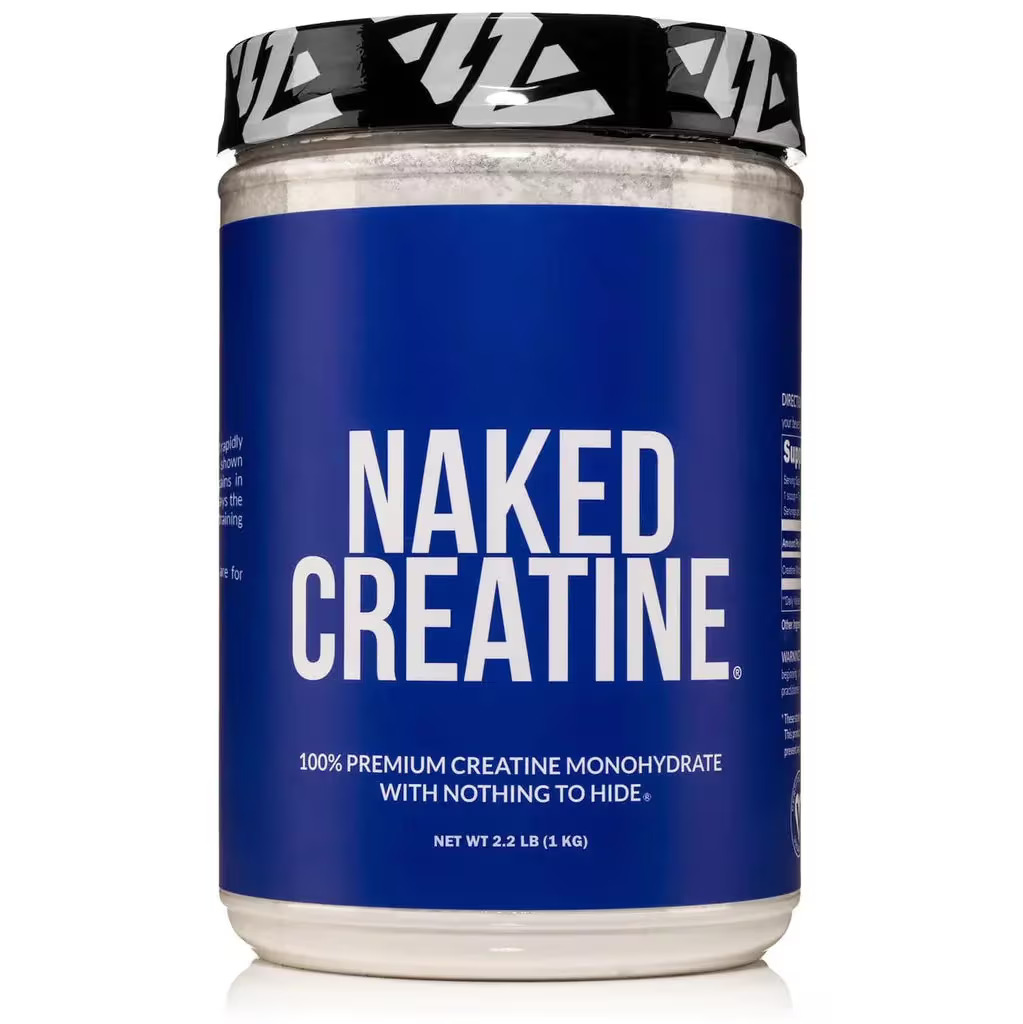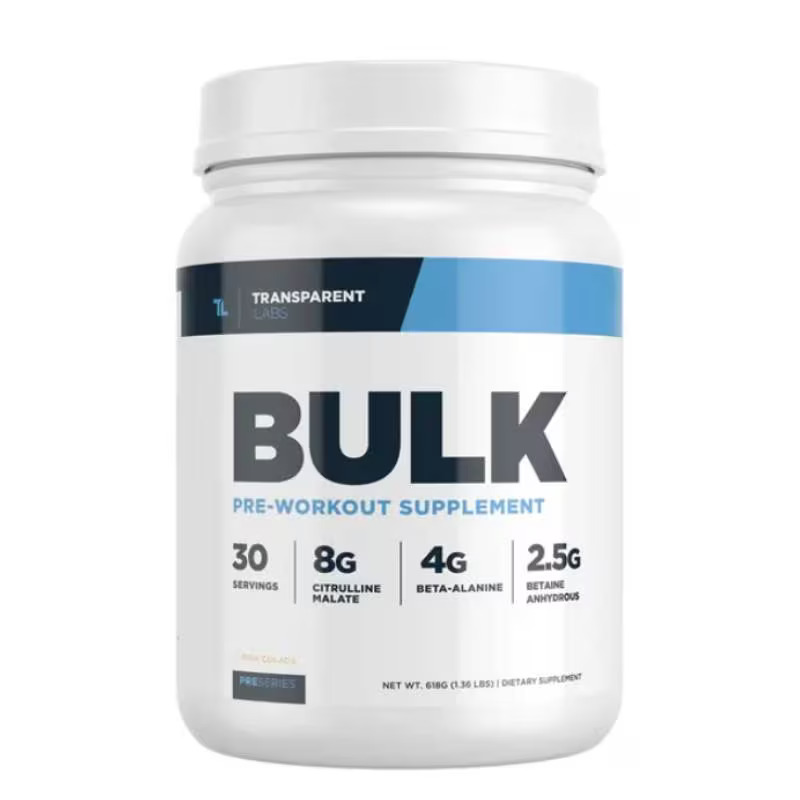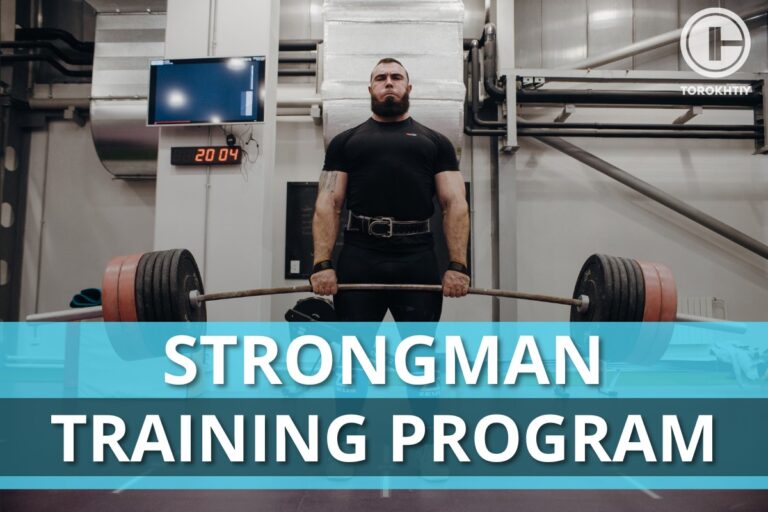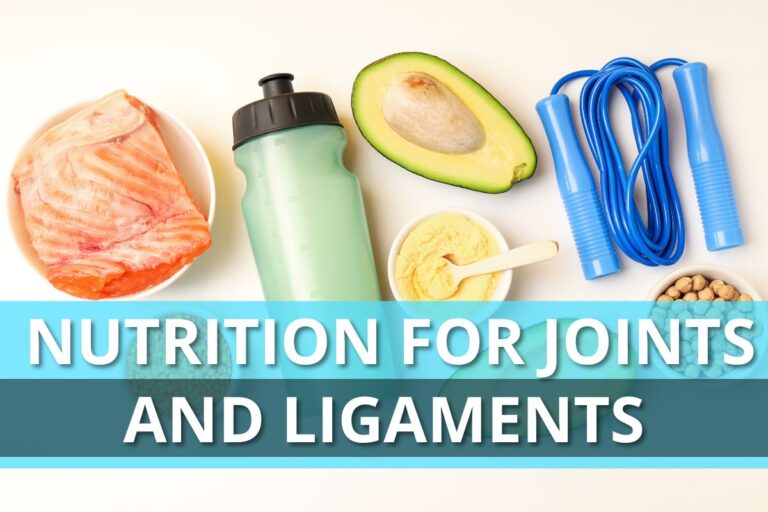Creatine vs Pre-Workout: Should You Take One Or Both?
Navigating the world of gym supplements can be overwhelming. In this article, we’ll compare creatine and pre-workout, two popular options with unique benefits. Understanding their differences will help you choose the right supplement to boost your performance, whether you’re a seasoned athlete or a beginner.
In the battle of pre-workout vs creatine, it’s essential to know their unique benefits. Pre-workout supplements boost energy and focus for better performance, while creatine improves strength and muscle growth. Choose the right supplement based on your specific goals and needs.
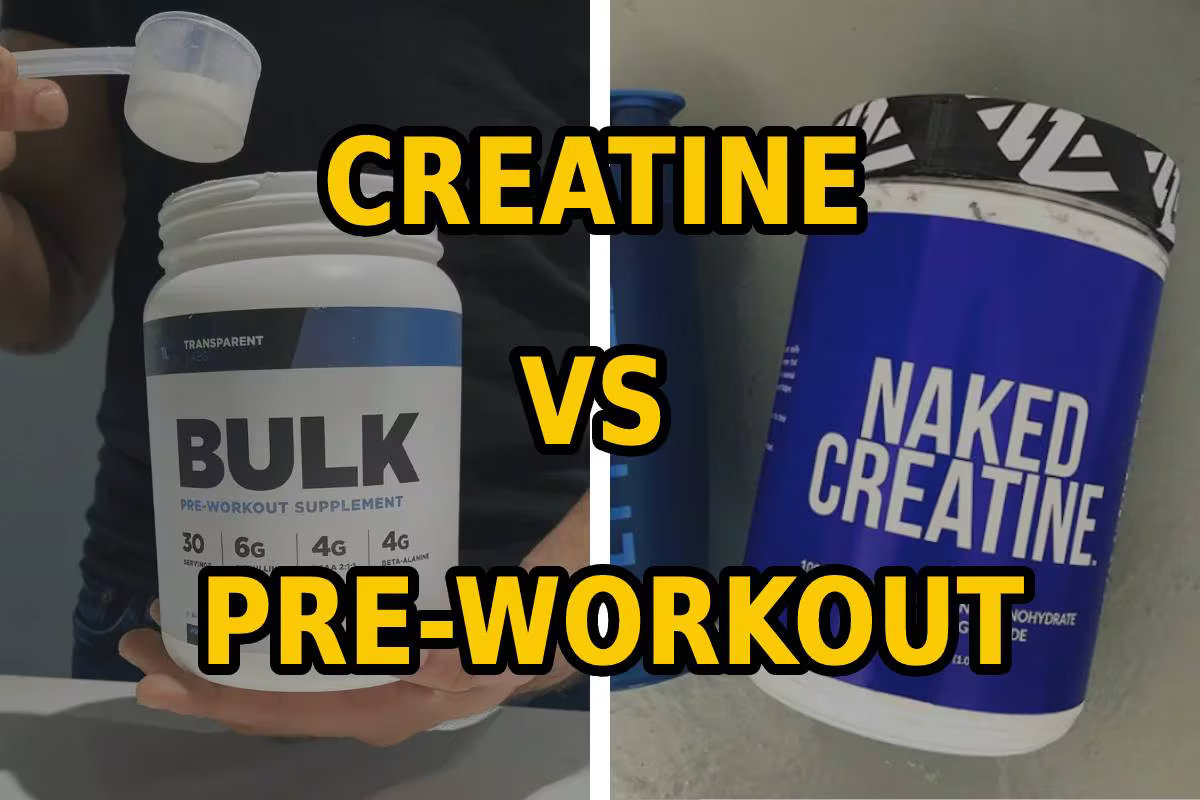
What is Creatine?
If you’ve been hitting the gym for some time, you’re well aware that achieving your desired results involves more than just showing up. Proper nutrition and the right supplements are key to enhancing your performance. You’ve probably heard the term “creatine” tossed around quite a bit, but what exactly is it?
Creatine is a natural compound found primarily in our muscles, and it plays a vital role in energy production during exercise. Our bodies produce creatine naturally, but it can also be obtained from food sources like red meat and fish. As a supplement, creatine has gained popularity among athletes and fitness enthusiasts for its ability to improve performance during high-intensity workouts.
Many people wonder, is creatine a pre-workout? While creatine is often included in pre-workout formulas, it can also be taken separately for its unique benefits. Studies have shown that creatine supplementation can increase muscle strength, power output, and even enhance muscle recovery. However, it’s important to note that individual responses to creatine can vary, making it essential to consider your personal fitness goals.
The optimum daily dose of creatine is 3-5 grams. It accumulates in the muscles in 2-3 weeks, after which the effect on weight and athletic performance can be assessed. Consult a healthcare professional before diving into supplementation if you have any doubts about the dosages and effects on your health.
What is Pre-Workout?
Now that we’ve covered creatine, let’s dive into pre-workout supplements and see how they compare. Pre-workout supplements are formulated to provide a quick energy boost, improve focus, and increase endurance during workouts.
They typically contain a blend of ingredients that work synergistically to enhance your performance. Common components include caffeine for energy and alertness, beta-alanine for buffering lactic acid and delaying fatigue, and amino acids like citrulline malate and L-arginine for better blood flow and increased nutrient delivery to muscles. In contrast to creatine, pre-workouts work quickly, their effect develops within about 30 minutes after ingestion.
By taking a pre-workout supplement before your workout, you can expect increased energy levels, heightened concentration, and reduced fatigue, allowing you to push through more challenging sessions and achieve your fitness goals effectively.
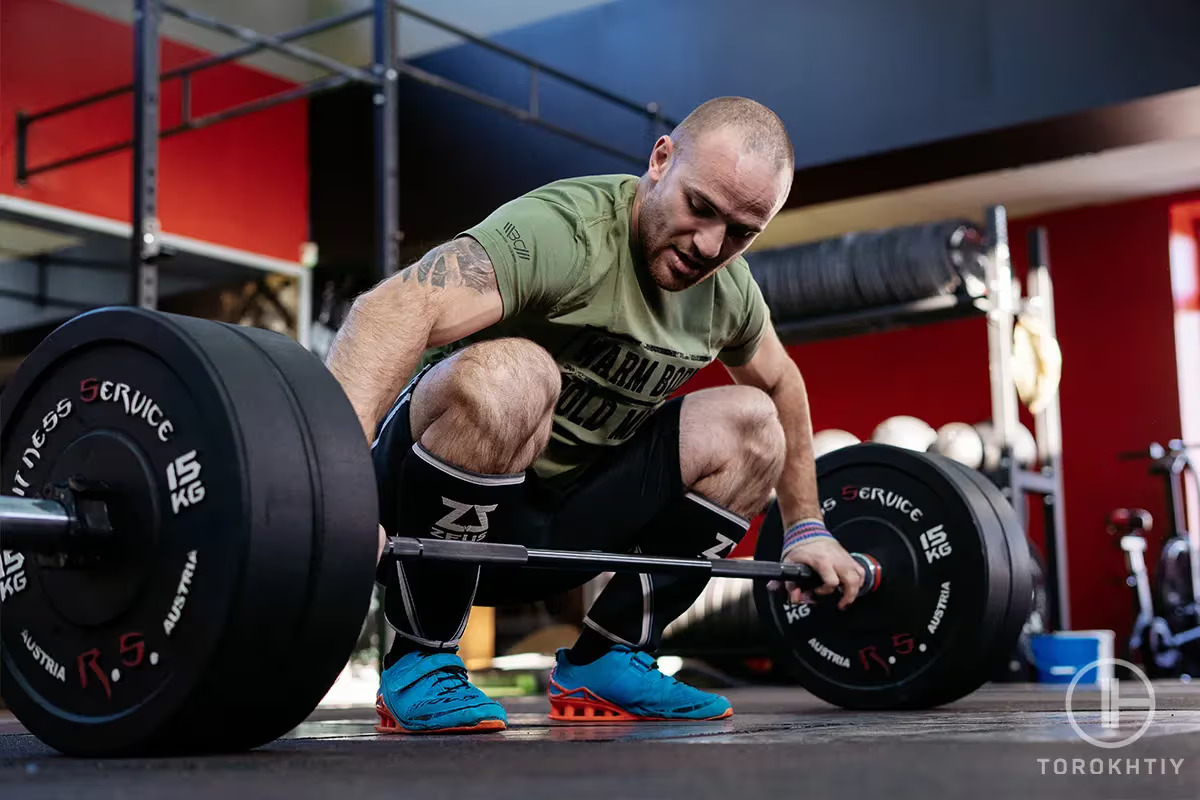
A common question is, does pre-workout have creatine? Some pre-workout supplements do contain creatine, but the specific ingredients vary between products. The creatine dosage in pre-workouts is usually low, about 1 g, which is not enough to achieve optimal daily intake. Therefore, additional creatine supplementation is still necessary to improve strength performance.
Individual responses to pre-workout supplements can vary, and not all products are created equal. To ensure optimal results, choose a reputable brand, pay attention to ingredient quality, and consult a healthcare professional before incorporating pre-workout supplements into your routine.
Differences Between Creatine and Pre-Workout: A Detailed Comparison
As we dive into the nitty-gritty of pre-workout and creatine supplements, it’s essential to understand the unique attributes of each option. In this section, we’ll provide a comprehensive comparison, touching on various aspects such as ingredients, processing, price range, and dosage recommendations, ensuring you have all the information needed to make an informed decision.
1. Breaking Down the Ingredients: Pre-Workout vs Creatine
Creatine supplements primarily contain creatine monohydrate, the most researched and proven form of creatine with numerous meta-analyses showing that it effectively increases muscle strength and power output. The effects of creatine develop gradually as it accumulates in the muscles after 2-3 weeks of intake. Some products may also include additional ingredients such as electrolytes to improve absorption although no real benefits are to be expected from it
Pre-workout supplements, on the other hand, feature a mix of ingredients designed to maximize the upcoming workout performance. Common components include caffeine, beta-alanine, citrulline malate, L-arginine, BCAAs, and various vitamins and minerals. You might ask, is there creatine in pre-workout supplements? While some pre-workouts include creatine, others focus on stimulants, amino acids, or other performance-enhancing ingredients. It’s crucial to remember that ingredient lists can vary significantly between brands, so always inspect the label to ensure you’re getting a product that aligns with your goals and preferences.
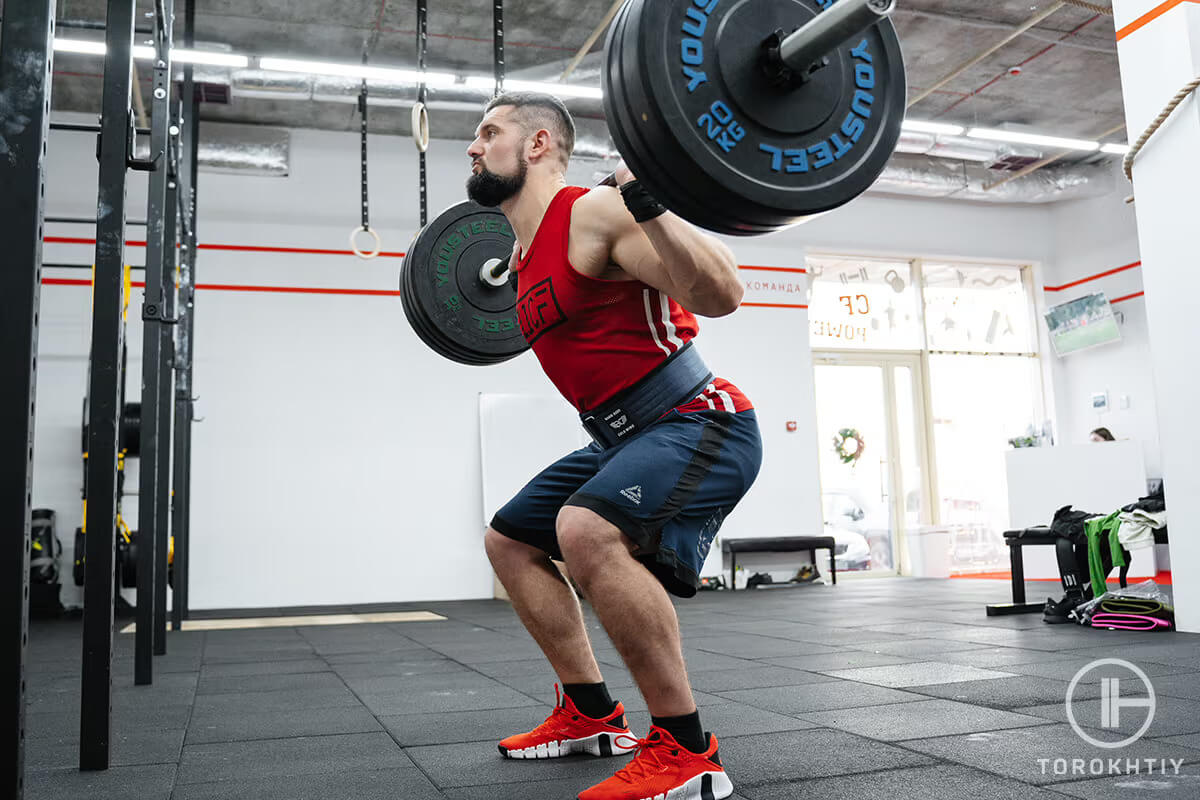
2. Price Range: Comparing the Price Points of Creatine and Pre-Workout Supplements
When it comes to price, creatine supplements are generally more affordable than pre-workout products. A basic creatine monohydrate powder can cost as little as $10-$15 for a month’s supply, while pre-workout supplements can range anywhere from $20 to $50 or more for a similar quantity. Keep in mind that the price can vary based on factors such as brand reputation, ingredient quality, and additional features.
3. Dosage and Recommended Use
For creatine supplementation there are two common strategies. First one is to begin with a loading phase, consuming 20 grams per day for 5-7 days, divided into four equal doses. After the loading phase it is recommended to reduce the dose to 3-5 grams per day and maintain it. However, due to the high creatine dosage, this approach could lead to gastrointestinal discomfort in some individuals with symptoms like bloating and gasses or pain. The advantage of this strategy is the faster saturation of muscles with creatine, instead of 2-3 weeks it happens in 1-2 weeks. Not a great advantage in most cases, especially considering the possible side effects.
The alternative is that you can saturate the muscle cells and get the same results by just taking 3-5g/day. For approximately 2-3 weeks the cells will be fully saturated but keep taking the dose daily.
Creatine can be taken at any time/ There is data showing the best time is to take creatine after working out when the muscles are depleted and also there’s slightly better absorption but the differences are not significant.

Pre-workout supplements should be taken 20-30 minutes before exercising, with the dosage varying based on individual tolerance and the specific product. Start with a half serving to assess your tolerance, then gradually increase as needed. Always follow the manufacturer’s guidelines and consult a healthcare professional for personalized advice.
In conclusion, both creatine and pre-workout supplements can significantly enhance your workout performance, but they serve different purposes. Ultimately, you may ask, what’s better, creatine or pre-workout? There’s no one-size-fits-all answer, as the best choice will depend on your individual needs and fitness goals. Creatine is ideal for boosting muscle strength and power output, while pre-workout supplements are designed to increase energy, focus, and endurance. Consider your unique fitness goals and preferences when choosing between the two, and don’t hesitate to consult a healthcare professional for guidance.
Pros and Cons of Creatine
Positives:
Could be better:
Dispelling Myths and Misconceptions About Creatine
Despite the overwhelming evidence supporting creatine’s benefits, several misconceptions still persist. Let’s take a closer look at some common myths and provide evidence-based information to counter these misconceptions:
Creatine causes water retention and bloating: While creatine can cause an increase in intramuscular water content, this should not be a cause for concern. The additional water in the muscles can contribute to a fuller, more muscular appearance, which if anything, it will make you look better. Alternative forms of creatine that claim to eliminate water retention lack sufficient data supporting their effectiveness.
Creatine is harmful to the kidneys: Numerous studies have demonstrated that creatine supplementation does not negatively impact kidney function in healthy individuals. However, those with pre-existing kidney issues should consult a healthcare professional before starting creatine supplementation.
Creatine leads to weight gain: While creatine can lead to a slight increase in body weight due to the aforementioned water retention, this is not the same as fat gain. In fact, creatine can support muscle growth, potentially leading to a more muscular and lean physique.
Creatine is a steroid: Creatine is a natural compound and not a steroid. It is not hormonally active and does not share the same side effects associated with steroid use.

Pros and Cons of Pre-Workout Supplements
Positives:
Could be better:
Potential Side Effects, Interactions, and Precautions
In this section, we’ll discuss some of the key points to consider when using creatine and pre-workout supplements.
1. Creatine
Side effects: Some individuals may experience gastrointestinal discomfort, bloating, or cramping.
Interactions: Consult your healthcare professional if you are taking any medications, as creatine may interact with certain drugs.
Precautions: Individuals with kidney problems or a history of kidney disease should consult a healthcare professional before using creatine supplements due to a potential water retention.
2. Pre-Workout Supplements
Side effects: Users may experience jitteriness, increased heart rate, or difficulty sleeping due to the stimulant content.
Interactions: Be cautious when combining pre-workout supplements with other stimulants, like caffeine or energy drinks, to avoid potential adverse effects.
Precautions: If you have any pre-existing medical conditions or are taking medications, consult a healthcare professional before using pre-workout supplements.
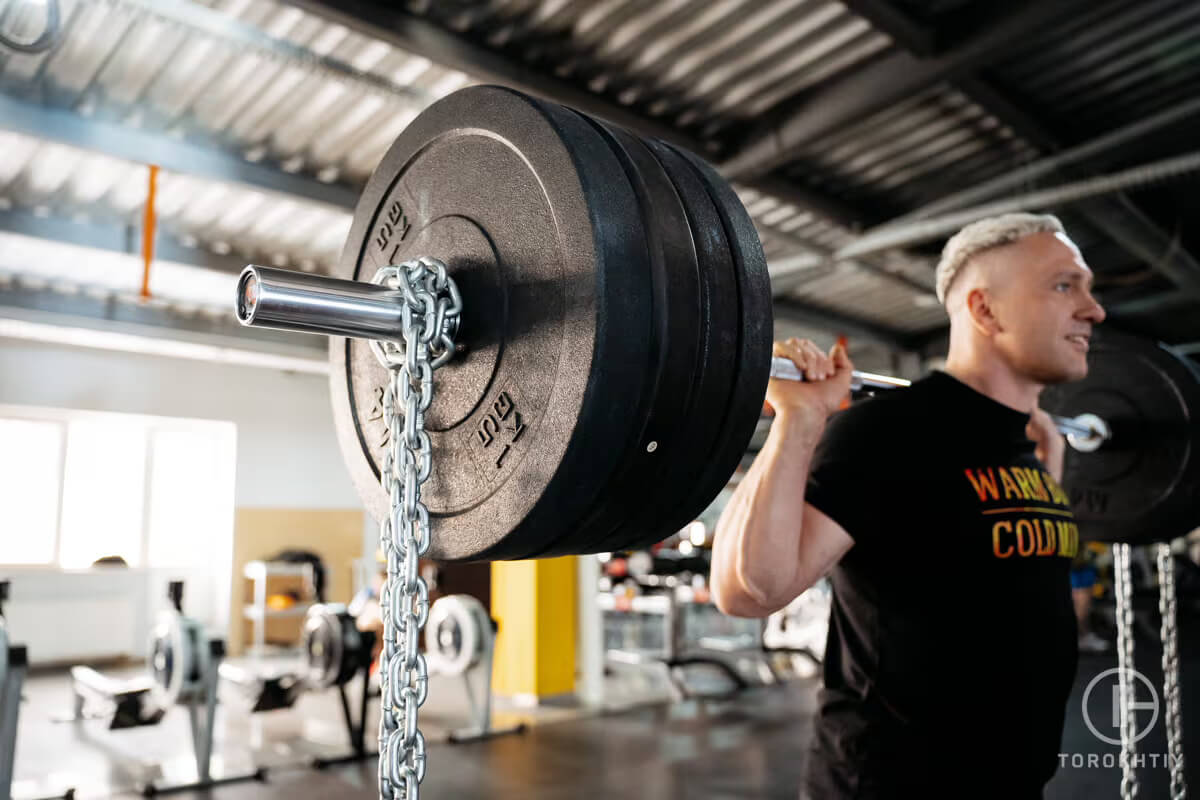
When to Use Creatine and Pre-Workout: Determine Which Supplement is Best for Specific Fitness Goals
So, should you choose pre-workout or creatine? Both supplements offer unique benefits, and the right choice will depend on your fitness goals and preference.
Creatine is best suited for individuals focusing on building muscle strength, power, and size. It is particularly effective for high-intensity exercises, such as weightlifting and sprinting, where short bursts of power/ ATP are required. If your primary goal is to increase muscle mass and improve performance in strength-based activities, creatine supplementation is an excellent choice.
Given that creatine also accumulates and affects the nervous system, some positive effects may be observed in cognitive processing, especially in conditions with brain creatine deficits, which could be induced by acute stressors (e.g., exercise, sleep deprivation) or chronic, pathologic conditions (e.g. traumatic brain injury, aging, depression). So if you feel that taking creatine makes your brain work better, it might be true.
Pre-workout supplements are ideal for those looking to enhance their overall workout experience by boosting energy levels, improving focus, and increasing endurance. They are well-suited for a variety of exercise types, including cardio, strength training, and high-intensity interval training (HIIT). If you’re seeking a comprehensive performance boost across various fitness disciplines, pre-workout supplements are a fitting option.
Finally, you might consider whether you should take pre-workout and creatine together. Ultimately, the decision to take pre-workout and creatine simultaneously depends on your individual needs and goals. Some athletes benefit from using both, while others prefer to focus on one supplement at a time. Experimenting with different combinations and assessing how your body responds will help you determine the most effective approach to enhance your performance and optimize your results.

Recommended Products: Brief Reviews of Recommended Creatine and Pre-Workout Supplements
In this section, we’ll introduce our top picks for creatine and pre-workout supplements. We’ve carefully selected these products based on ther quality, effectiveness, and user reviews. Read on to discover the best options available to help you achieve your fitness goals and enhance your performance.
1. Creatine Recommendation: Naked Nutrition Creatine Monohydrate Powder
Naked Nutrition’s Creatine Monohydrate Powder is a high-quality, pure creatine supplement that contains no additives or artificial ingredients. Sourced from Germany, this product uses a patented manufacturing process to ensure maximum purity and effectiveness.
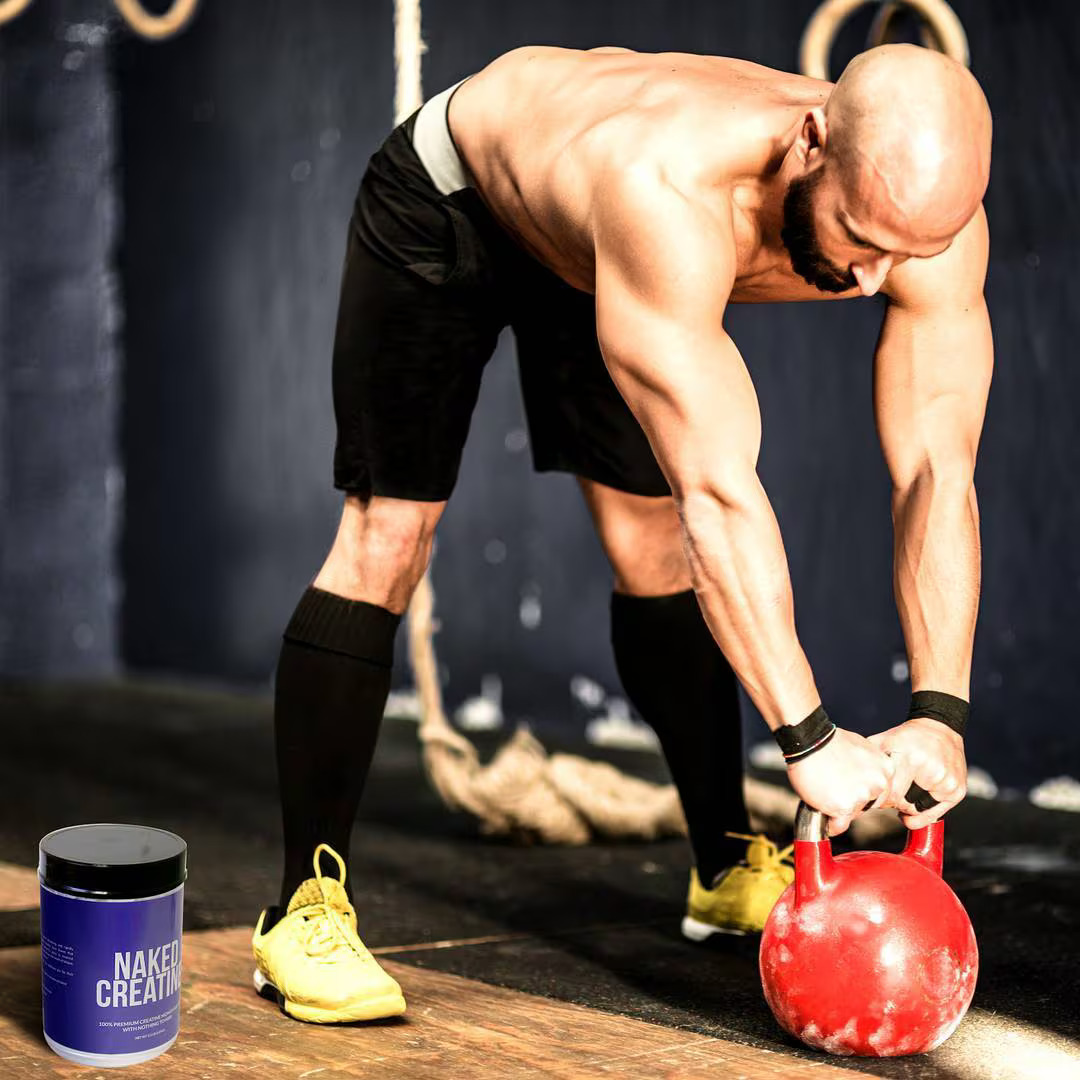
With 5 grams of creatine monohydrate per serving, Naked Nutrition’s powder supports increased muscle strength, power, and recovery. The unflavored formula allows for easy mixing with your favorite beverage or protein shake.
2. Pre-Workout Recommendation: Transparent Labs PreSeries BULK Pre-Workout
Transparent Labs PreSeries BULK Pre-Workout is a powerful, well-formulated supplement designed to optimize your workout performance. It contains a blend of scientifically-backed ingredients, including citrulline malate, beta-alanine, and caffeine, to increase energy, focus, and endurance.
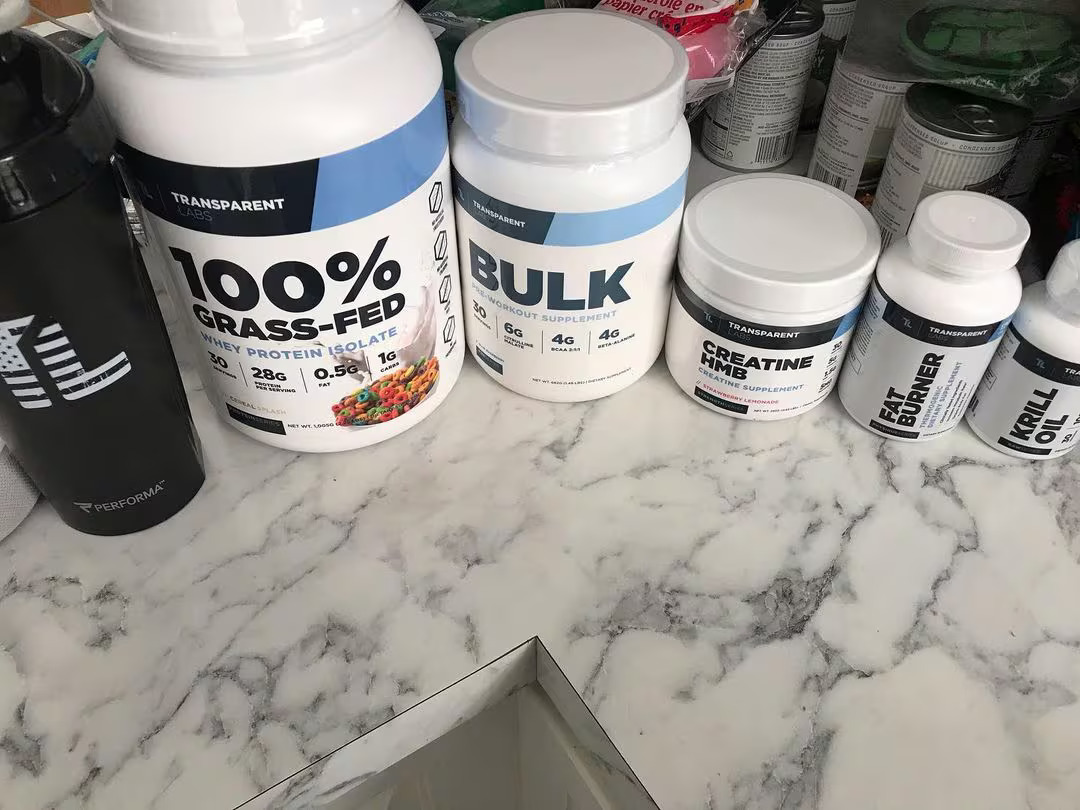
This pre-workout also includes a testosterone support complex, making it an excellent choice for those looking to build lean muscle mass. Transparent Labs is known for its commitment to ingredient transparency, ensuring that you know exactly what you’re putting into your body. With no artificial sweeteners, colors, or preservatives, this pre-workout is a top choice for individuals seeking a clean and effective performance boost.
FAQ
Does Pre-Workout Have Creatine?
Some pre-workout supplements may contain creatine, but not all do.
Is Creatine and Pre-Workout the Same?
Creatine and pre-workout are not the same, as they serve different purposes and have different ingredient profiles.
Should You Take Pre-Workout and Creatine Together?
You can take pre-workout and creatine together, as they complement each other.
Can Pre-Workout Help With Weight Loss?
Weight loss requires a caloric deficit. Pre-workout can indirectly support weight loss by enhancing workout performance, which may result in burning additional calories. However, drinking the pre-workout itself will not be a solution for weight loss.
How Long Does It Take for Creatine to Work?
Depends on your supplementation strategy. The loading phase can accelerate muscle saturation with creatine: taking 20-25 grams daily for 5-7 days, divided into several 5-gram servings throughout the day. However, it’s possible to achieve the same muscle saturation level without taking such a high dose, it just takes 1-2 weeks longer on average. Taking 3-5 grams of creatine daily over a period of approximately 21-28 days is just as effective as the loading phase in saturating the muscle cells.
Conclusion
In conclusion, both creatine and pre-workout supplements offer unique benefits to help you achieve your fitness goals. By understanding their differences and selecting the right product for your needs, you can maximize your workout performance and results. Don’t forget to consult a healthcare professional for personalized advice and guidance. We’d love to hear your thoughts and experiences with creatine and pre-workout supplements! Feel free to share your questions and insights in the comment section below.
Also read:
- How Long Does Pre Workout Last
- Pre Workout vs Coffee
- Bcaa vs Pre Workout
- Best Natural Pre Workout
- Can You Take Pre Workout While Breastfeeding
- Best Low Caffeine Pre Workouts
- Best Pre Workout With Low Caffeine
- Does Pre Workout Help You Lose Weight
- Best Preworkout Without Creatine
- Best Healthy Pre Workout Drink
References:
- Creatine biosynthesis and transport in health and disease // Sciencedirect: https://www.sciencedirect.com/science/article/abs/pii/S0300908415003429
- Estimating protein quality of meat products from the content of typical amino-acids and creatine // Pubmed: https://pubmed.ncbi.nlm.nih.gov/5841078/
- Effects of creatine on body composition and strength gains after 4 weeks of resistance training in previously nonresistance-trained humans // Pubmed: https://pubmed.ncbi.nlm.nih.gov/14967873/
- Effects of creatine supplementation and resistance training on muscle strength and weightlifting performance // Pubmed: https://pubmed.ncbi.nlm.nih.gov/14636102/
- International society of sports nutrition position stand: caffeine and exercise performance // jissn: https://jissn.biomedcentral.com/articles/10.1186/s12970-020-00383-4
- International society of sports nutrition position stand: Beta-Alanine // Pubmed: https://pubmed.ncbi.nlm.nih.gov/26175657/
- A critical review of citrulline malate supplementation and exercise performance // ncbi: https://www.ncbi.nlm.nih.gov/pmc/articles/PMC8571142/
- SUMMARY REPORT: CONSIDERATION FOR CLASSIFICATION OF A SUPPLEMENT INGREDIENT // ais: https://www.ais.gov.au/__data/assets/pdf_file/0013/1000417/36182_Supplements-fact-sheets_BCAA-v4.pdf
- International Society of Sports Nutrition position stand: safety and efficacy of creatine supplementation in exercise, sport, and medicine // Pubmed: https://pubmed.ncbi.nlm.nih.gov/28615996/
- Levels of creatine, organic contaminants and heavy metals in creatine dietary supplements // sciencedirect: https://www.sciencedirect.com/science/article/abs/pii/S0308814610016377?via%3Dihub
- Creatine monohydrate supplementation on body weight and percent body fat // Pubmed: https://pubmed.ncbi.nlm.nih.gov/14636103/
- International Society of Sports Nutrition position stand: safety and efficacy of creatine supplementation in exercise, sport, and medicine// Pubmed: https://pubmed.ncbi.nlm.nih.gov/28615996/
- The acute effects of a multi-ingredient pre-workout supplement on resting energy expenditure and exercise performance in recreationally active females// ncbi: https://www.ncbi.nlm.nih.gov/pmc/articles/PMC5755346/
- Is Creatine Safe For Your Kidneys?// Examine: https://examine.com/supplements/creatine/faq/d2oRElg-is-creatine-safe-for-your-kidneys/
- Creatine Supplementation and Brain Health// ncbi: https://www.ncbi.nlm.nih.gov/pmc/articles/PMC7916590/
Why Trust Us?
With over 20 years in Olympic Weightlifting, our team does its best to provide the audience with ultimate support and meet the needs and requirements of advanced athletes and professional lifters, as well as people who strive to open new opportunities and develop their physical capabilities with us.
By trusting the recommendations of our certified experts in coaching, nutrition, dietology, and sports training programming, as well as scientific consultants, and physiotherapists, we provide you with thorough, well-considered, and scientifically proven content. All the information given in the articles concerning workout programming, separate exercises, and athletic performance, in general, is based on verified data. We ensure that you can rely on our professionals’ pieces of advice and recommendations that can be treated as personalized ones which will benefit you and fully meet your needs.
The product testing process is described in more detail here
Author: Oleksandr Maksymenko
Certified Sports Nutritionist,
MSc Sports Dietetics
Specializing in: Weight management, Fitness / Sports nutrition
Oleksandr is a professional fitness nutritionist certified by the Fitness Professional Association (FPA). He follows the principles of evidence-based dietetics and fosters a healthy relationship with food in his clients, ensuring there are no strict prohibitions on their favorite foods or frequent lapses. His primary goal is not only to achieve results for you but also to sustain them over the long term, all while enjoying tasty and delicious food.

